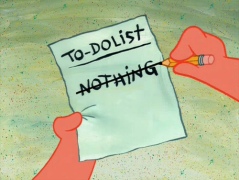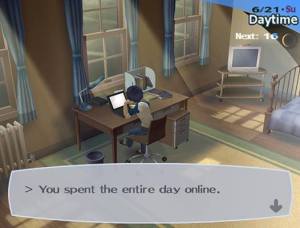For those of you who are familiar with my blog, you would know that I am a long term casual academic, who last year was able to gain fractional employment within the tertiary sector under a short term contract as a professional member of staff. I am very fortunate in that this opportunity has afforded me a modicum of security and financial stability. This set of circumstances occurred at both a good and bad time for me. Last year my Dad became ill with liver cancer and died, while earlier this year my husband had to go undergo spinal surgery and is unable to work full-time while he is in recovery. In my writing I have acknowledged both my extreme privilege in being able to access paid leave concessions during these stressful experiences, while also acknowledging that the precariousness of my working situation has meant that I have never quite felt comfortable enough in my position to take full advantage of them. I am employed year-to-year and it just so happened that I was in the position of having to apply for my own position just a short time after having buried my Dad.
Needless to say, 2014 wasn’t the best year for me.
However due to my hard work, and the successes of my project, I am now acknowledged on my institution’s public webpages as a member of staff. From the outside it may appear that I may have even made it. I am liked and respected, perhaps even valued by my colleagues and peers. However the nature of my employment has meant that I have never felt like I was properly a part of the institution. Still no tinsel for me.
And soon I may not be. I very recently learned that the grant body which funds my position may be withdrawing their support for my project into 2016. Not because of any wrongdoing on my part. Not because of any dissatisfaction from the student participants of the project I am a part of, if anything the opposite is true. Not because of anyone’s individual cruelty, this is the system and the system works in its own obtuse way. Not because of budgetary mishandling or political maneouvreing or any kind of strategic misstep on my part, but simply because the priorities of this group has shifted onto other projects. This is simply the nature of soft funding, one minute you have it and the next you don’t. Now this decision isn’t fait accompli. I was tasked with writing an “impact statement” which would outline the risks to the university if funding was not to continue from this source. I wrote one, a damn good one, which made salient points about the welfare of the students and the need we were addressing. Later in the year I will learn of the outcome of this appeal. Until then I continue to work under the BAU model, making plans for the future and operating under the tenuous assumption that everything will be just fine.
I am in limbo. My position is funded up until 31 December 2015, but after that there is no certainty. If and when funding is secured (either from this original source, or internally sourced) then my job will still not likely be secure as, like last year, I will be put into the position of writing my own position description, and again applying for my own job. Sound familiar?
This is entirely circumstancial, and none of these events are a reflection of my skills, abilities, or dedication to the role that I have. I know this intellectually. I understand that a staggering 8 out of 10 workers employed within higher education in Australia are employed under either casual or short term contracts contracts (boy do I know). Lots of people know about it. The NTEU know about it. Actual Casuals know about. There has been an academic conference dedicated to these issues. I am not unlike so many of my friends and colleagues in the sector, insecure, overworked, and possibly soon even unemployed.
Then why do I feel so fucking ashamed?
Today I was on my phone at work, speaking to a friend on the phone about a conference submission we were working on. She asked me how I was and naturally, this was at the forefront of my mind. I hesitated in telling her, not because I thought she would judge me (quite the opposite in fact) but because I work in an open plan office and didn’t want the people I work with to know my secret. Because they might judge me. Because they might blame me. Because they might think I brought this upon myself with incompetence, or laziness, or stupidity.
I told my friend anyway, playing it off like it wasn’t a big deal, but I could feel my face burning. My dirty secret was out, a secret not mine to keep, a secret not a secret at all.
It has always been important to me that people know how hard I work, how dedicated I am to what I do. I am often the first to arrive in the office and among the last to leave. Now we are in the middle of Australia’s winter I frequently walk to my car in the dark, using my phone’s flashlight function to illuminate the way. I try I try I try so. fucking. hard.
Perhaps the root of my shame: I am a decidedly “working class” girl. My Dad was a hard-working electrician, my Mum “stayed at home”. We lived in a fibro house in what is classified as a Low SES area – my living situation had its own statistical category. We had a nice house and I am proud of how hard my Dad worked to provide for us, but we certainly were not “well off”. I was also the first in my family to attend university. My family was all incredibly proud of me for attending university, even if they didn’t always understand what I did there (my major was Communications, my Nan would tell people I studied primary school teaching, or psychology, or English literature, as the mood struck her). I had their full support to do the thing, even when the benefits of the thing became muddied. Even after I dropped out of my PhD there was still a certain amount of prestige for them associated with me being a “tutor” (now known as casual academic, a term which conveys prestige that tutor never did). But by withdrawing from the PhD, and never extending beyond the role of the casual academic, I feel like I failed my hardworking and principled family. Conversely I also failed the institution by never quite being good enough for them, ultimately failing to get the PhD that meant so much to me. By never properly escaping from the trap of casual academia all I proved (to myself, if no one else) was that I didn’t work hard enough. My academic successes were shared by my family and my institution, my failures were mine alone. Over time I came to reframe my misguided dedication to academia as a noble pursuit, a higher calling, to mask the shame I felt as having failed within a system in which there is little-to-no chance to succeed in the first place.
However a decade later my insistence in remaining loyal to the sector has paid off, in a fashion. I have secured work I enjoy. I am good at it. I am starting to build a profile. And now the chance exists that the rug will be pulled out from under me.
Richard Kuttner (cited in Bertram) notes that the ‘new’ economy has destabilised the central premise of the ‘old work economy’, that being that a worker’s commitment and loyal service to her employer would be rewarded over time with security and advancement opportunities. However, as Eva Bertram argues, with downsizing and deindustrialisation within the new economy, employment now comes with little to no security. As has long been discussed in regards to the increased casualisation and precarity of employment within the tertiary sector in particular, employee loyalty and commitment are a decidedly irrational decision. There is no security in higher education in Australia. While regular employment “provides the anchor for spatial and temporal aspects of daily life” (Wilson in Bertram) Bertram notes that:
Today however, incoherence and unpredictability are not only a hallmark of unemployment, but also are the characteristics of many jobs
Work in the tertiary sector in Australia is indeed both incoherent and unpredictable. It makes no sense for casual and limited term contract employees to be loyal to the tertiary institutions they work for. I know from my own experience that my loyalty, commitment, and dedication are unlikely to be acknowledged, let alone rewarded, in this current climate. Yet I was a casual academic for over a decade. I know of higher education workers who have worked for even longer on back-to-back limited-term contracts, only to find out at the eleventh hour after all of those years of service, that they didn’t have a job to return to after Christmas. I know of an exceptional academic who worked as a subject coordinator in one session, only to be scrambling for work the next. These stories aren’t the exception in higher education in Australia, they are the rule.
I knew all of those things. I know them intimately. I blog about them for goodness sake. And yet still I try. Still I commit. Still I return to my car in the dark. Still I miss the soccer practice and the school pick ups. Still I irrationally hope that my hard work will be rewarded with security, opportunities for advancement, recognition of my contribution.
As well as being ashamed, I think I am also angry. Over the twelve months I have sacrificed time I could have spent with my daughter, who this year entered kindergarten. I sacrificed time I could have used to look after myself both physically and emotionally following the illness and death of my Dad. My working class background, coupled with my long term history of precarious employment has left me feeling ashamed and guilty. I am angry at my own perceived childishness for investing in the seemingly naïve notion that hard work is always recognised and rewarded in due course. I am angry at myself. I am angry at being in this position yet again.
I know this problem is much bigger than me, my friends and colleagues, my Twitter allies. These are issues that need to be addressed at the systemic level. I don’t have answers, only a drive to see positive change in the sector that I am a part of, however tenuously. Join the #securework Tweetup on Friday and share your stories. I know I will.
Tweetup to discuss #securework this Friday 11am AEDT More info: http://t.co/acUdETdrUs #auscasuals #highered pic.twitter.com/4eu7JlxVQb
— NTEU National Office (@NTEUNational) July 15, 2015














